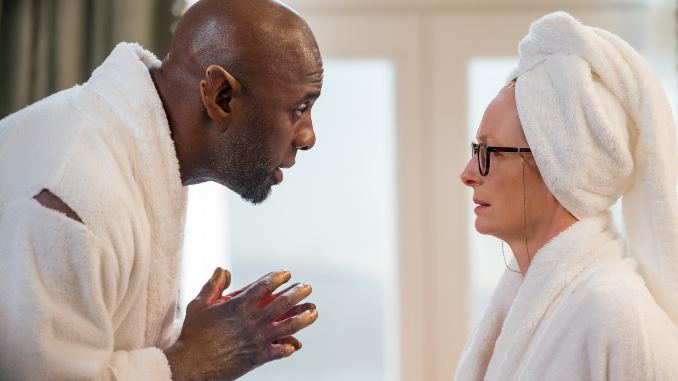George Miller’s Genie Conjures Loopy Magic in Three Thousand Years of Longing

Writer-director George Miller makes movies with such relative infrequency that it’s both tempting and confounding to meticulously scan each film for puzzle pieces that could be potentially assembled into a portrait of his singular, elusive genius. This is especially true for the Miller-directed films that do not star Mad Max, dancing penguins or Babe the pig, of which there are now a whopping total of three. How to decode such scarcity, drawing lines between Witches of Eastwick and Lorenzo’s Oil? Three Thousand Years of Longing—Miller’s third such non-Max, non-family movie, and tenth fiction feature overall, putting him just ahead of Terrence Malick in directorial productivity—seems designed to nourish and obfuscate in equal measure. Following the benchmark-establishing action-sci-fi invention of Mad Max: Fury Road, a rare cultural-consensus masterpiece and one whose logistical vastness has stunned no less than Steven Soderbergh, Miller has, in a way, gone much smaller. Much of the movie is about serenely single academic Alithea (Tilda Swinton) having a hotel-room conversation with a Djinn (Idris Elba)—a genie she has accidentally freed, can now grant her three wishes and, like virtually all genies, yearns for his own freedom.
But Three Thousand Years of Longing travels far beyond the confines of this room, into a series of fanciful backstories and anecdotes that make up the Djinn’s history. They amount to tales of his failures: To successfully grant wishes, to help those in need and to obtain that freedom for himself. These explanations are crucial to Alithea, who enjoys her solitary life enough to feel suspicious of such a fantastical enticement. She knows from countless stories that wishes can backfire, misfire and generally leave the wisher worse for wear. So she endeavors to learn more about the Djinn, in order to better trust his offer. To gild the lily, Miller makes Alithea a “narratologist,” which means we get a fair helping of dialogue about how and why we “tell each other stories,” teetering right on the edge of a cringeworthy screenwriter TED Talk. Those with a particular sensitivity toward wonder-of-storytelling nausea may feel their stomachs lurch in anticipation of a speech about how the greatest unreliable narrator is life itself.
Luckily, Miller’s earnestness and cleverness never get caught in a Life Itself-style tangle of writerly self-admiration. His movie, itself based on A. S. Byatt’s novella “The Djinn in the Nightingale’s Eye,” is quite content to slow traditional narrative momentum. The Djinn and the narratologist have a philosophical chat, augmented with his stories, which land somewhere between anecdote and fable, told with an array of lush production design, costumes and, well, mostly workable special effects. Cinematographer John Seale also shot Fury Road, and maintains that film’s colorful pop here. How lovely, to see these technical flourishes employed for stories of both the shaggy-dog and love varieties, rather than relentless action.
-

-

-

-

-

-

-

-

-

-

-

-

-

-

-

-

-

-

-

-

-

-

-

-

-

-

-

-

-

-

-

-

-

-

-

-

-

-

-

-








































